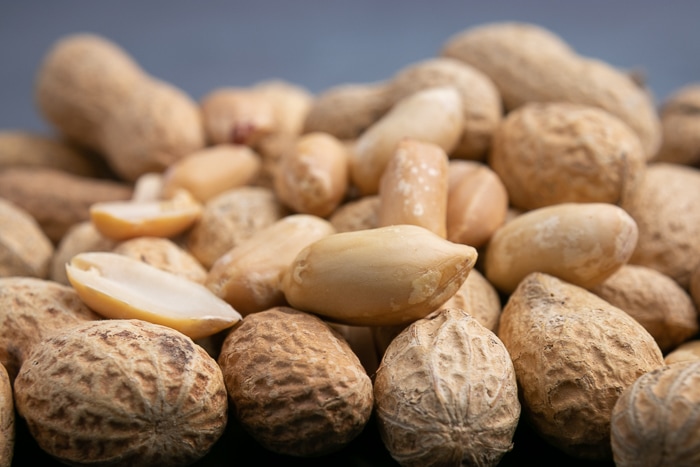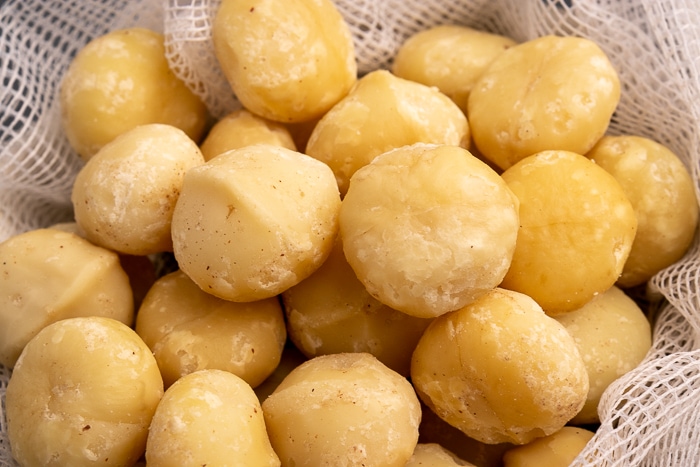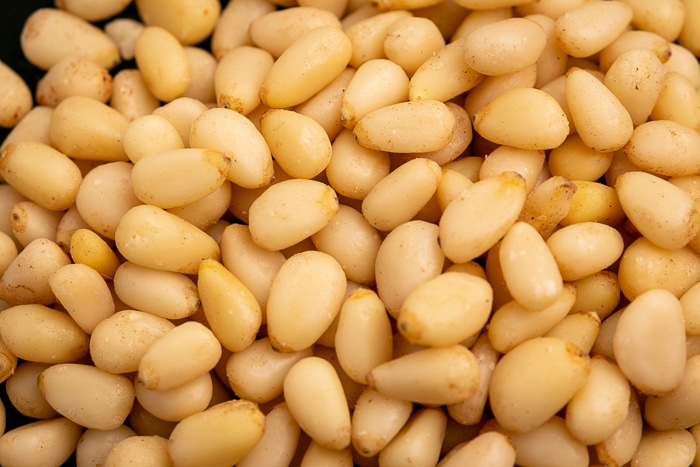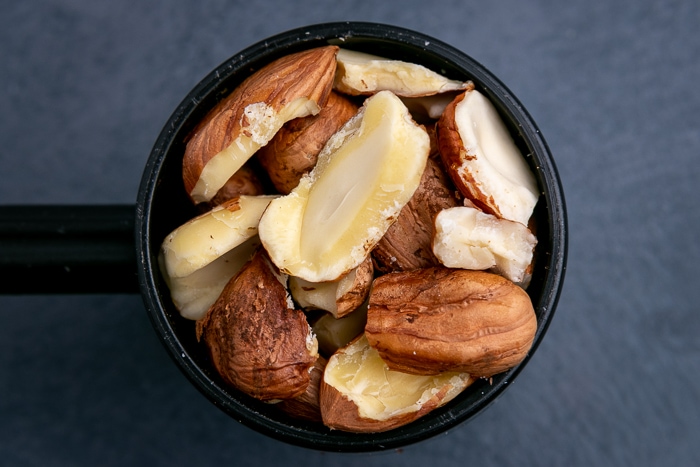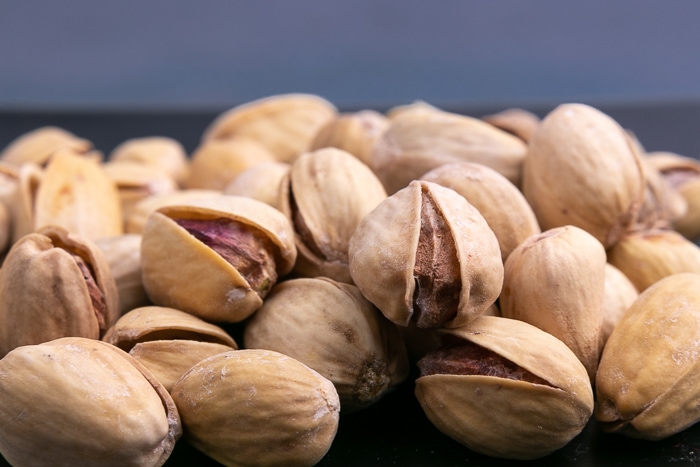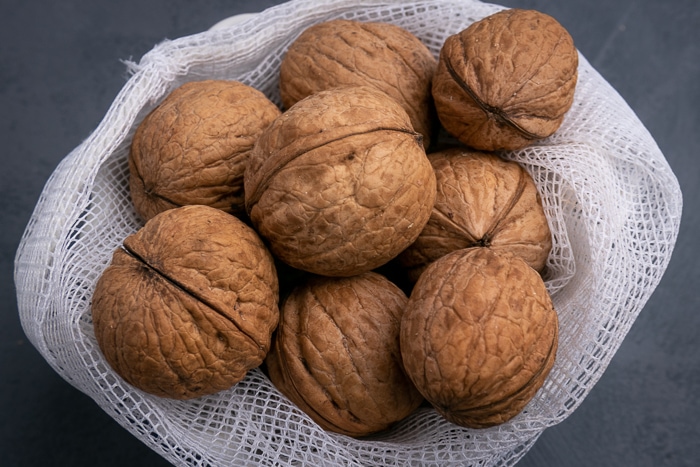Do Pecans Go Bad?
So you’re trying to level up your nutrition. You bought a few bags of pecans for a healthy snack instead of your normal mid-morning cookie. Now the nuts are great and all, but after storing them for a few months you start to wonder: do pecans go bad?
Or maybe you bought a bag, and you keep them in the cabinet in the kitchen. But you’re almost sure you read somewhere that you should refrigerate pecans. You found that information weird and did nothing about it. But after thinking about it for a while, you decided it’s time to learn what’s the proper way of storing pecans.
If you’d like to learn more about storing pecans, their shelf life, and going bad, this article is for you.
It’s especially useful to read it if you’ve bought them in bulk and still have a large amount to go through. Plus they are quite pricey, so it makes sense to take good care of them and get the most out of them.
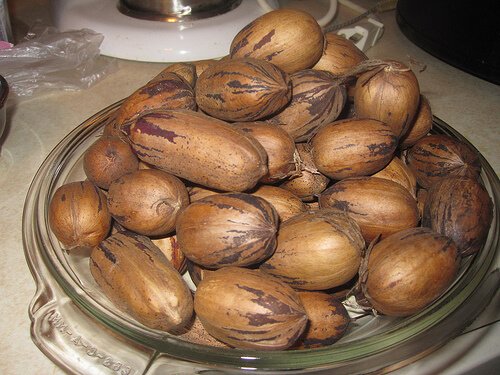
How To Store Pecans?
You store pecans pretty much the same way you store other nuts, such as walnuts or pine nuts.
Pecans, just like any nuts, are loaded with plant-based oil. And oil being oil, it tends to go rancid when exposed to high temperatures or temperature changes, moisture, or air. The last one is especially true for liquid oils, like olive oil.
The shell gives this nut some protection from the outside world. Thus it makes sense that the storage recommendations are slightly different for shelled and unshelled pecans.
Let’s start with unshelled pecans. These need to be stored in a cool and dry place, like a cabinet in the pantry. The shell takes good care of the seed, so it doesn’t require refrigeration for at least a few months. If you expect to store the unshelled pecans for longer than half a year, consider transferring them to the fridge or freezer. That would give you better results.
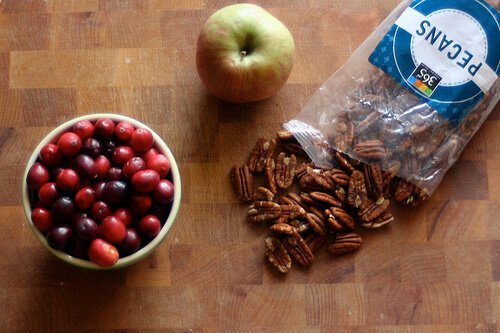
When it comes to pecans out of the shell, you shouldn’t keep them at room temperature. The best place to store them is the refrigerator. Unless you expect to keep them around for over a year, then the freezer is the better option.
You need to protect the nuts from moisture. That means that in the fridge the nuts should either be in their original packaging if it’s still unopened, or you should pour them into an airtight container or a resealable freezer bag. That will keep the moisture at bay.
Make sure that the container or bag is always tightly sealed. Besides protecting the nuts from moisture, that will also make sure they don’t absorb any strong odors.
When it comes to freezing shelled pecans, the drill is exactly the same as in unshelled pecans. You transfer the nuts to an airtight container or a freezer bag and chuck it in the freezer. Plain and simple.
How Long Do Pecans Last
Once again, let’s start with unshelled pecans. These can be stored in good quality for at least 6 months in the pantry, and about a year in the fridge. For longer storage, go with the freezer.
Shelled pecans have a relatively shorter shelf life. They should retain freshness for about 9 months in the fridge. If you need more time, the freezer is the way to go.
| Pantry | Fridge | |
|---|---|---|
| Unshelled pecans | 6 months | 12 months |
| Shelled pecans | 9 months |
Please note that the periods above are for best quality.
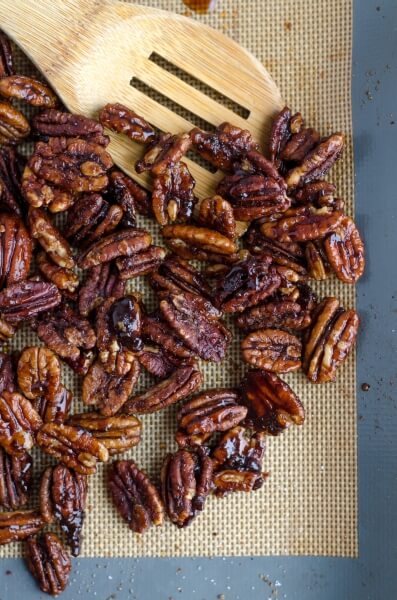
How to Tell If Pecans Are Bad?
When it comes to pecans in the shell, you pretty much know what you’re dealing with once you crack it open. If it looks good, it’s okay. If it’s dried out, some sort of net is forming on it, or there’s anything other wrong with it, just toss it out.
When it comes to shelled pecans, besides visual cues like mold, or any other organic growth, you need to use your nose and taste. If the nuts smell rancid or like used cooking oil, they’re rancid. Same thing if they’ve developed a bitter or stale taste.
Please note that rancid pecans aren’t necessarily unsafe to eat, but their nutritional value might be slightly decreased. Plus, they won’t taste nearly as good as they used to.
Rotten Records: Share Your Snap!
Caught some food past its prime? Upload your photo to “Rotten Records” and help others spot the signs of spoilage. Every image makes our food community safer and more informed!
